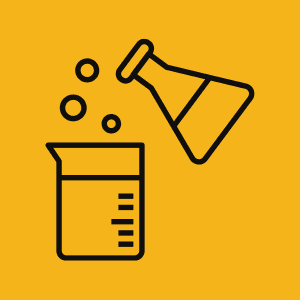
How to Take Control of Your Success (Without Waiting for Permission)
Ever noticed how some colleagues seem to naturally advance in their careers while others stay stuck? The difference often isn’t talent or luck – it’s personal accountability. Let’s explore how taking ownership of your professional journey can transform your career trajectory.
Understanding True Accountability
Forget everything you think you know about workplace accountability. It’s not about being blamed when things go wrong or taking on more than your fair share. True accountability is about owning your impact and actively shaping your professional path.
Key mindset shifts for accountability:
- Moving from “that’s not my job” to “how can I help?”
- Shifting from waiting for direction to proposing solutions
- Transforming problems into opportunities
- Seeing feedback as a gift, not criticism
The Power of Personal Ownership
The most successful employees don’t wait to be held accountable – they proactively take ownership of their work, their development, and their results. This shift in approach changes how managers view you and how opportunities find you.
Think about accountability as your personal brand. Every action, decision, and interaction either strengthens or weakens this brand. The choice is yours.
Signs you’re embracing accountability:
- You follow through without reminders
- You communicate proactively about challenges
- You propose solutions alongside problems
- You own mistakes and learn from them
Beyond Your Job Description
True accountability extends beyond your basic responsibilities. It’s about understanding how your work impacts others and contributes to broader organizational goals.
Imagine your role as a piece in a larger puzzle. Accountability means not just fitting into your space, but helping complete the entire picture.
Ways to expand your impact:
- Understanding how your work affects others
- Identifying opportunities for improvement
- Sharing knowledge with colleagues
- Supporting team goals beyond your role
Building Trust Through Reliability
Consistently demonstrating accountability builds trust with colleagues and leaders alike. This trust becomes your career currency, opening doors to new opportunities and responsibilities.
Trust-building behaviours:
- Delivering on commitments consistently
- Communicating transparently
- Taking initiative appropriately
- Supporting team success
Managing Up Effectively
Part of being accountable is making your manager’s job easier. This doesn’t mean doing their job – it means being proactive, reliable, and solution-oriented.
Strategies for managing up:
- Keeping them informed without overwhelming
- Bringing solutions, not just problems
- Understanding their priorities
- Anticipating needs before they arise
Growing Through Challenges
Accountability shines brightest during difficult times. How you handle setbacks and mistakes often matters more than your successes.
When facing challenges:
- Acknowledge issues quickly
- Take responsibility for your part
- Focus on solutions
- Learn and adjust for the future
Creating Your Development Path
Don’t wait for someone else to plan your professional growth. Take ownership of your development and actively seek opportunities to learn and improve.
Development strategies:
- Setting personal growth goals
- Seeking feedback regularly
- Finding mentors and role models
- Creating learning opportunities
Building Productive Relationships
Accountability in the workplace isn’t just about individual performance – it’s about being a reliable and supportive colleague.
Relationship-building practices:
- Supporting team members’ success
- Sharing credit generously
- Being reliable in collaborations
- Offering constructive feedback
Taking Action Today
Start strengthening your accountability today. Small changes in how you approach your work can lead to significant improvements in your professional impact and satisfaction.
Immediate actions to increase accountability:
- Choose one area for improved ownership
- Communicate intentions clearly
- Follow through consistently
- Reflect on and learn from outcomes
The Path to Professional Growth
Remember, accountability isn’t about perfection – it’s about progress. Each day brings new opportunities to demonstrate ownership and build trust.
Focus areas for ongoing development:
- Regular self-assessment
- Proactive communication
- Continuous learning
- Building supportive relationships
Ready to accelerate your professional growth through stronger accountability? Let’s explore how targeted coaching can help you take your career to the next level.
continue reading
More Playbooks...
Discover what is the ladder of accountability and how to use it as a powerful framework for developing your team.
Discover 7 common accountability scenarios that undermine team performance and learn practical conversation frameworks to address each one.
Discover how an accountability coaching program transforms team performance without adding pressure, time, or headcount.




